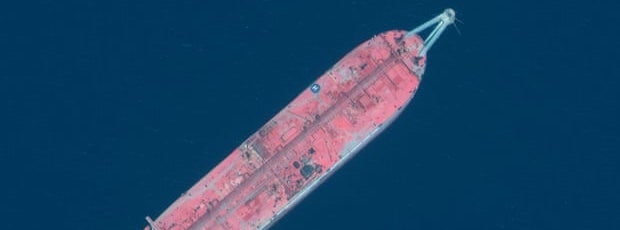In this meeting, the two sides conferred on the latest political and on-the-ground situation of Yemen, especially the recent visit of Mr Griffiths to Sana’a, the developments in Ma’rib province, the need for the removal of economic siege against the Yemeni people, and the ways to establish peace and stability in the country.
Griffiths and Khaji also conferred on the elimination of the possible risk of oil spill from the FSO Safer oil tanker.
Khaji presented Iran’s initiative to eliminate the oil spill and environmental pollution risk, and said Tehran is still ready to help establish peace in Yemen.
The UN envoy, in turn, presented a report on his visits to the region, and elaborated on the UN’s efforts to settle the Yemen crisis.
The civil war in Yemen has suspended essential maintenance on the increasingly fragile vessel FSO Safer with more than 1 million barrels of oil in its hold and hindered disaster preparedness.
The decaying super-tanker anchored off Yemen with 1.1 million barrels of Marib light crude oil in its hold looks increasingly likely to wreak havoc in the Red Sea, experts are warning.
Talks between the UN and the Houthi administration in control of the area aimed at brokering a deal for international intervention reached a “dead end” late June 1.
The structural integrity of the FSO Safer is rapidly deteriorating, risking a catastrophic oil spill that threatens the region’s people and marine ecosystem, which scientists describe as a critical refuge from climate change for corals. A solution has proven elusive in a country mired in civil war and humanitarian crisis.
The Safer is a floating storage and offloading vessel, property of the Yemeni state-owned company SEPOC. It has been anchored at the end of the Marib oil pipeline, around 9 kilometers (5.5 miles) offshore from the port city of Hudaydah, since 1988.
“It’s not a question of whether the Safer will eventually spill its contents, it’s a question of when,” David Soud, a security analyst at US-based international consultancy I.R. Consilium, who has followed the situation closely, told Mongabay by email.
